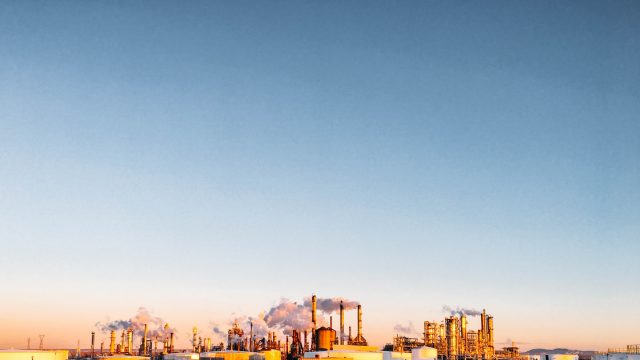Transportation
A speedy recovery will not be enough to achieve a speedy decarbonization
Last update – September 2023
Sector rating

SENSITIVE RISK FOR ENTERPRISES
Fragmentation
Internationalization
Capital Intensity
Profitability
Strengths & weaknesses

- Government support in the form of public infrastructure (ports, airports, roads, railways etc.), given its crucial role in enabling trade, tourism and daily mobility.
- Monopoly or oligopoly in some countries, which gives companies pricing power.
- Shipping companies benefit from 1) bunker fuel being cheaper than car diesel or jet kerosene and 2) the largest transport capacity: today’s largest vessels can transport up to 24,000 containers, which explains why 85% of global trade is transported by sea.
- While airlines have a lower credit profile, rail companies are mostly state-owned, resulting in relatively easy access to financing.

- Fuel-price volatility constantly affects margins as it is the main cost output. In 2022 and 2023, bunker oil, diesel, kerosene and bio fuel prices have been weighing more than usual on companies’ earnings.
- Increasingly criticized for its negative environmental impact, especially airlines (anti-flying social movements).
- Capital-intensive sector as companies need an expensive fleet of airplanes, buses, trucks, ships etc, which must be frequently renewed and have high maintenance costs.
- Highly leveraged as companies rely on a huge amount of debt to acquire and expand their fleets.
- Since it mostly transports freight, maritime transportation is very cyclical as transport prices and volumes depend on economic activity (trade).
- Airlines have faced tough competition since the arrival of low-cost carriers.
- Compared to maritime transport, road transport faces higher labor costs despite its lower transportation capacity (a truck can carry only 1 container).
- Road transportation companies depend on government budgets for road infrastructure, which remains less developed in developing countries, limiting expansion. In developed countries, the toll system is too expensive.
Sector overview
Subsectors
Contact
Maria Latorre
Allianz Trade
Allianz Trade


